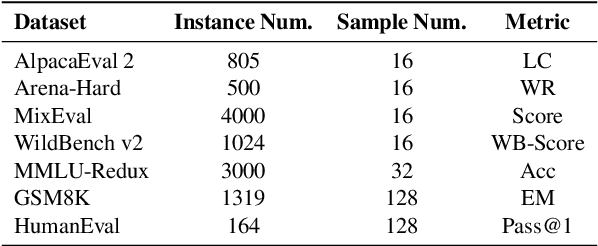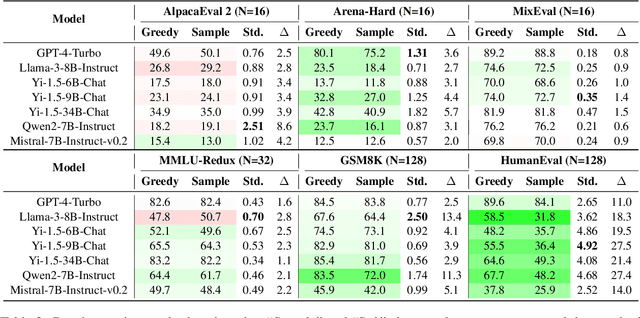The Good, The Bad, and The Greedy: Evaluation of LLMs Should Not Ignore Non-Determinism
Paper and Code
Jul 15, 2024



Current evaluations of large language models (LLMs) often overlook non-determinism, typically focusing on a single output per example. This limits our understanding of LLM performance variability in real-world applications. Our study addresses this issue by exploring key questions about the performance differences between greedy decoding and sampling, identifying benchmarks' consistency regarding non-determinism, and examining unique model behaviors. Through extensive experiments, we observe that greedy decoding generally outperforms sampling methods for most evaluated tasks. We also observe consistent performance across different LLM sizes and alignment methods, noting that alignment can reduce sampling variance. Moreover, our best-of-N sampling approach demonstrates that smaller LLMs can match or surpass larger models such as GPT-4-Turbo, highlighting the untapped potential of smaller LLMs. This research shows the importance of considering non-determinism in LLM evaluations and provides insights for future LLM development and evaluation.
 Add to Chrome
Add to Chrome Add to Firefox
Add to Firefox Add to Edge
Add to Edge